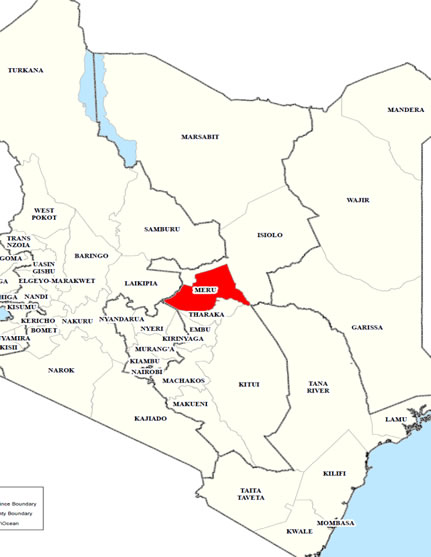Meru County, located in the heart of Kenya, is a hidden gem waiting to be explored. From the lush green landscapes, dotted with rolling hills, to the vibrant local culture, this county offers a captivating experience that will leave you enchanted. With a rich history and a diverse range of attractions, Meru County has something for everyone, whether you’re a nature lover, an adventure seeker, or simply looking to immerse yourself in the warmth of the local community. Step into this captivating paradise and be prepared to be awe-struck by the beauty and charm that Meru County has to offer.
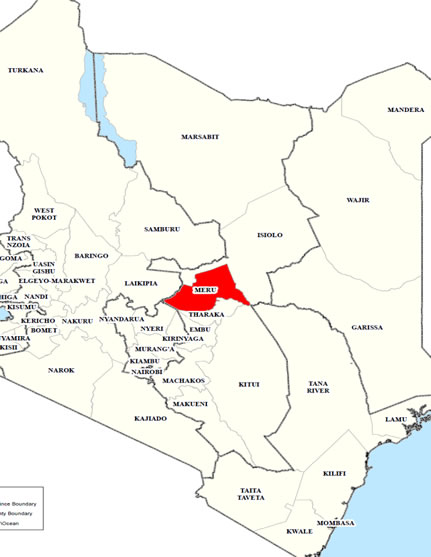
This image is property of meru.go.ke.
Geography
Location
Meru County is located in the eastern region of Kenya. It lies between the coordinates 0° 04′ South and 37° 32′ East. The county shares borders with Tharaka-Nithi County to the south, Isiolo County to the north, Laikipia County to the west, and Kitui and Embu counties to the east.
Size
With an area of approximately 6,936 square kilometers, Meru County is one of the largest counties in Kenya. Its vast expanse is marked by diverse landscapes, ranging from fertile lowlands to rugged hills and mountains.
Topography
Meru County’s topography is characterized by a mixture of plains, plateaus, and highlands. The eastern part of the county comprises relatively flat plains, which gradually give way to undulating plateaus in the central region. Towards the west, the altitude increases, leading to the majestic Mount Kenya and the Tharaka-Nithi Hills. This varied topography lends itself to a rich, diverse ecosystem with a wide range of vegetation and wildlife.
History
Early Settlement
Meru County has a rich history of human settlement dating back centuries. The indigenous Meru people, primarily of Bantu origin, have inhabited the area for generations. The Meru community developed an intricate social structure and cultural practices, passing down their traditions from one generation to the next.
Colonial Period
Like much of Kenya, Meru County was colonized by the British in the 20th century. During this period, the colonial government introduced various infrastructural developments such as roads and schools. However, the impact of colonization was not without challenges, including the displacement of the local population and loss of traditional land ownership.
Independence and Post-Independence
Following Kenya’s independence in 1963, Meru County became part of the larger Meru District before being granted county status in the year 2010. Since then, the county has made significant strides in areas such as education, healthcare, and infrastructure. These advancements have played a vital role in shaping the county’s growth and development.
Population
Demographics
Meru County has a diverse population of approximately 1.4 million people. The population is a mix of different ethnicities, reflecting Kenya’s multicultural identity. The majority of the population consists of the Meru community, but there are also substantial numbers of Kikuyu, Embu, and other ethnic groups residing in the county.
Ethnic Groups
The Meru people represent the largest ethnic group in Meru County, accounting for the majority of the population. They have a unique cultural heritage and are known for their rich folklore, traditional practices, and vibrant festivals. Other significant ethnic groups in the region include the Kikuyu and Embu communities, as well as small populations of Somali and Borana communities.
Languages
The primary language spoken in Meru County is Kimeru, which belongs to the Bantu language family. English and Swahili, as national languages, are also widely spoken. The linguistic diversity within the county highlights its multicultural nature, fostering an environment of cultural exchange and understanding.
Culture
Traditional Practices
The Meru people have a strong cultural heritage that is deeply rooted in their traditions and customs. Traditional practices, such as the initiation ceremony for young boys (murungi) and girls (mugwere), serve as important milestones in their lives. These practices are often accompanied by rituals, dances, and songs that celebrate their rich cultural identity.
Music and Dance
Meru County is renowned for its vibrant music and dance traditions. Traditional instruments, such as the karing’ongo (drum), muthunguci (harp), and the flute-like iritone, are used to create melodious rhythms. Dances like the kithindi, nkumungu, and kondero showcase the graceful movements and storytelling aspects of Meru cultural expression.
Festivals
Festivals form an integral part of Meru County’s cultural calendar. The annual Nkuyu cultural festival, held in December, is a showcase of Meru music, dance, and traditional artifacts. The festival attracts visitors from all over Kenya and beyond, providing a platform for cultural exchange and appreciation.
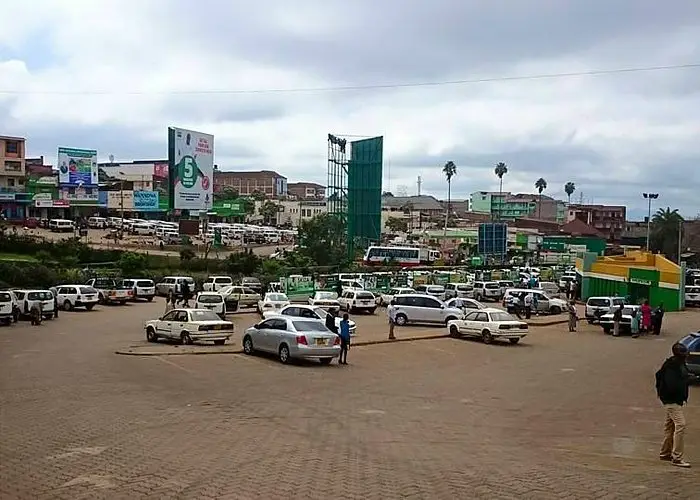
This image is property of dynamic-media-cdn.tripadvisor.com.
Economy
Agriculture
Agriculture is the backbone of Meru County’s economy, providing livelihoods to a significant portion of the population. The fertile lands in the county support the cultivation of a wide range of crops, including coffee, tea, maize, beans, and bananas. The county is also known for its dairy farming and livestock rearing.
Tourism
Meru County boasts breathtaking natural landscapes, making it a popular tourist destination. The Meru National Park, located on the eastern slopes of Mount Kenya, is home to diverse wildlife, including elephants, zebras, lions, and giraffes. Mt. Kenya National Park offers opportunities for mountain climbing and hiking, while the Tharaka-Nithi Hills provide stunning views and captivating scenery.
Trade and Commerce
The county plays a significant role in regional trade and commerce. The presence of vibrant markets and trading centers create opportunities for small-scale traders and entrepreneurs. Additionally, the county’s strategic location along major transportation routes facilitates the movement of goods and services, contributing to economic growth and development.
Infrastructure
Transportation
Efficient transportation networks are crucial for connecting communities and facilitating economic activities. Meru County has seen significant improvements in its road infrastructure, with well-maintained highways connecting it to neighboring counties and the capital city, Nairobi. The county also has an airport, facilitating air travel and business opportunities.
Education
Education is a top priority for the county’s leadership, resulting in improved access to quality education for the residents. The county hosts a range of primary and secondary schools, technical institutions, and universities. These educational institutions are instrumental in nurturing the county’s human capital and equipping the youth with the necessary skills for economic empowerment.
Healthcare
Access to quality healthcare services is a crucial aspect of human development and well-being. Meru County is committed to improving healthcare infrastructure, ensuring that its residents have access to essential medical services. The county has hospitals, health centers, and dispensaries, providing primary healthcare and specialized services to the population.
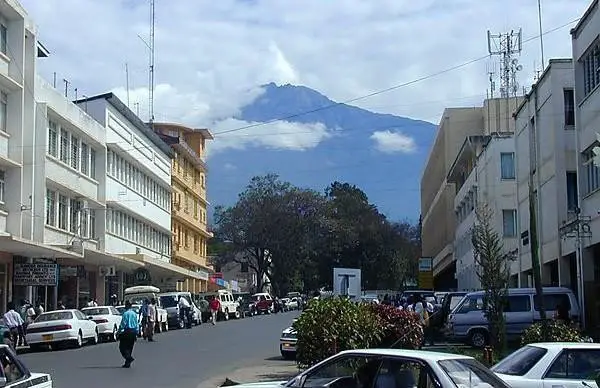
This image is property of www.shadowsofafrica.com.
Politics
County Government
Meru County operates under a devolved system of governance, with an elected county government. The county government is responsible for providing basic services, implementing development projects, and promoting the welfare of its residents.
Political Parties
Like the rest of Kenya, political parties play a significant role in Meru County’s political landscape. Different political parties are represented within the county government, contributing to a multi-party democracy and facilitating the expression of diverse political viewpoints.
Leadership
Meru County has a dedicated leadership committed to driving the county’s growth and development. County officials work closely with national government agencies, development partners, and the private sector to implement projects that address the needs and aspirations of the residents.
Tourist Attractions
Meru National Park
Meru National Park is a must-visit destination for wildlife enthusiasts and nature lovers. The park offers the opportunity to spot a wide range of animals, including elephants, cheetahs, buffaloes, and various species of birds. The park’s diverse vegetation and scenic landscapes make it an ideal location for game drives and nature walks.
Mt. Kenya National Park
As the second-highest mountain in Africa, Mount Kenya is an iconic landmark, attracting mountaineers and adventurers from around the world. The national park surrounding the mountain offers breathtaking views, unique flora, and fauna, and thrilling trekking experiences. Scaling its peaks is a challenging yet rewarding endeavor.
Tharaka-Nithi Hills
The Tharaka-Nithi Hills provide a scenic escape and a chance to appreciate the beauty of nature. With rolling hills, lush greenery, and stunning waterfalls like the Marania Falls, this area offers tranquility and serenity away from the bustle of urban life. Visitors can engage in hiking, bird watching, and picnics amidst the captivating landscape.
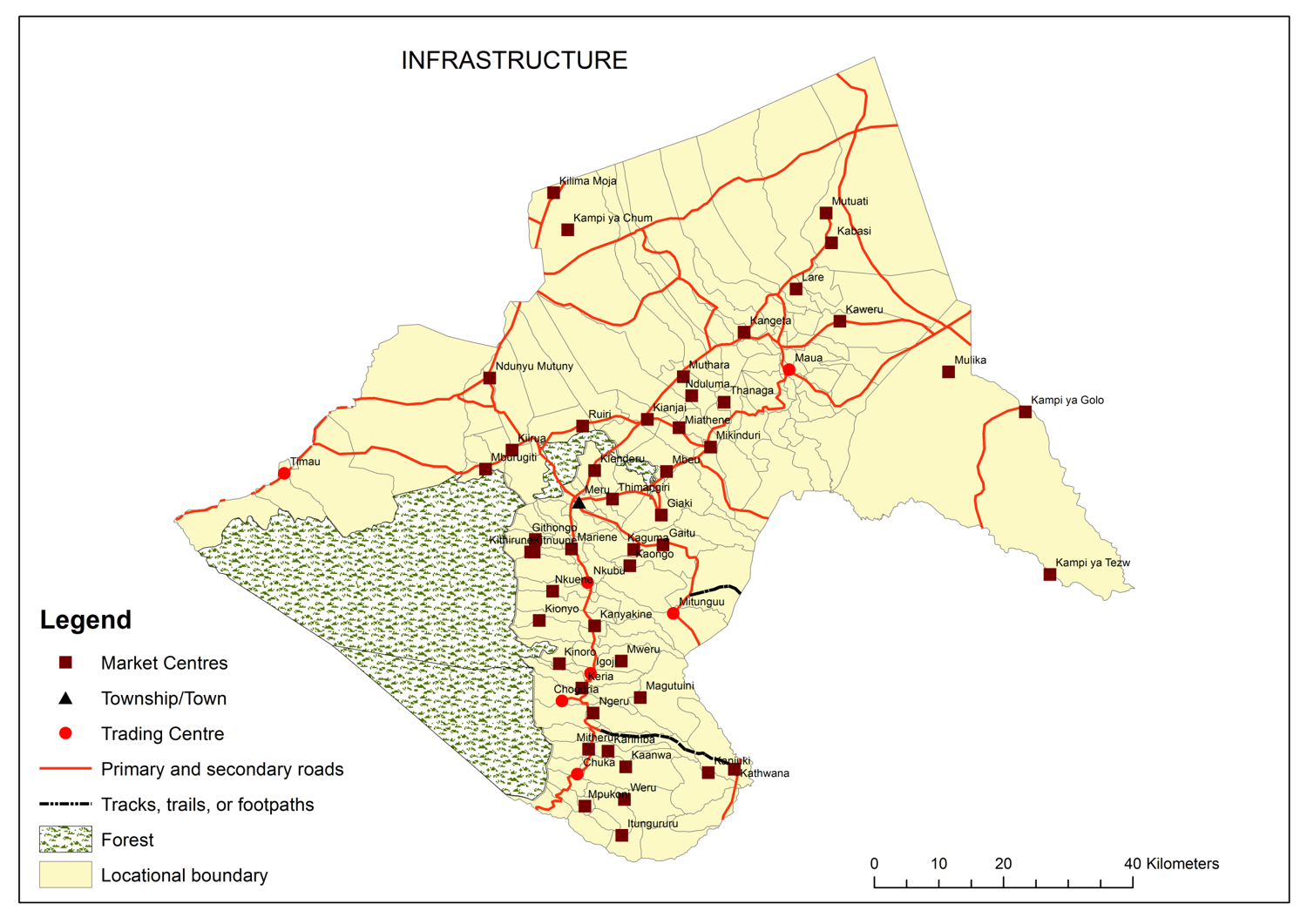
This image is property of meru.go.ke.
Challenges
Infrastructure Development
While Meru County has made significant strides in infrastructure development, there is still room for improvement. The county faces challenges in maintaining and expanding its road network, electricity supply, and water infrastructure. Overcoming these challenges is crucial to facilitate economic growth and improve the quality of life for residents.
Poverty
Poverty remains a pressing challenge in Meru County. Efforts are being made to address this issue through various poverty alleviation programs, including the promotion of sustainable agriculture, vocational training, and access to credit for small-scale entrepreneurs. Continued efforts to uplift the living standards of the community are necessary for long-term development.
Healthcare Access
Despite improvements in healthcare infrastructure, access to quality healthcare services remains a challenge, particularly for remote areas within Meru County. Enhancing healthcare facilities, expanding outreach programs, and improving the availability of medical personnel in underserved areas are essential steps towards ensuring equitable healthcare access for all residents.
Future Prospects
Development Projects
The future of Meru County is promising, with various development projects underway. These projects focus on enhancing infrastructure, such as road construction, water supply, and electricity distribution. Additionally, efforts are being made to diversify the county’s economy and attract investments in sectors like manufacturing, technology, and agribusiness.
Investment Opportunities
Meru County presents numerous investment opportunities across various sectors. The county’s agricultural potential, coupled with its strategic location, makes it an attractive destination for agro-processing industries. There are also opportunities for eco-tourism, renewable energy, and real estate development. The county government is actively promoting these investment prospects, creating an enabling environment for business growth.
Sustainable Growth
As Meru County continues to develop, a strong focus is being placed on sustainable growth. Efforts are being made to integrate environmental conservation practices into development projects. Initiatives such as afforestation, wildlife protection, and sustainable waste management are being prioritized, ensuring that future generations can enjoy the county’s natural beauty and resources.
In conclusion, Meru County is a vibrant region with a rich cultural heritage, breathtaking landscapes, and a growing economy. The county’s commitment to inclusive development, improved infrastructure, and sustainable growth positions it as a place of great potential. With its diverse attractions and investment opportunities, Meru County is poised to continue thriving and welcoming visitors from around the world.
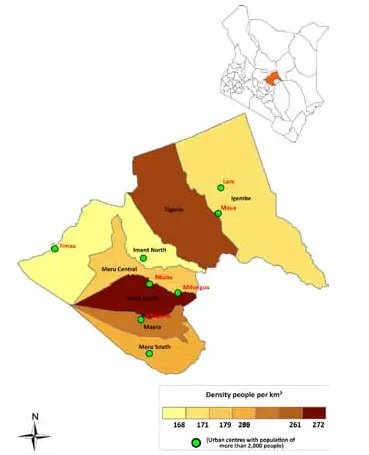
This image is property of opencounty.org.

